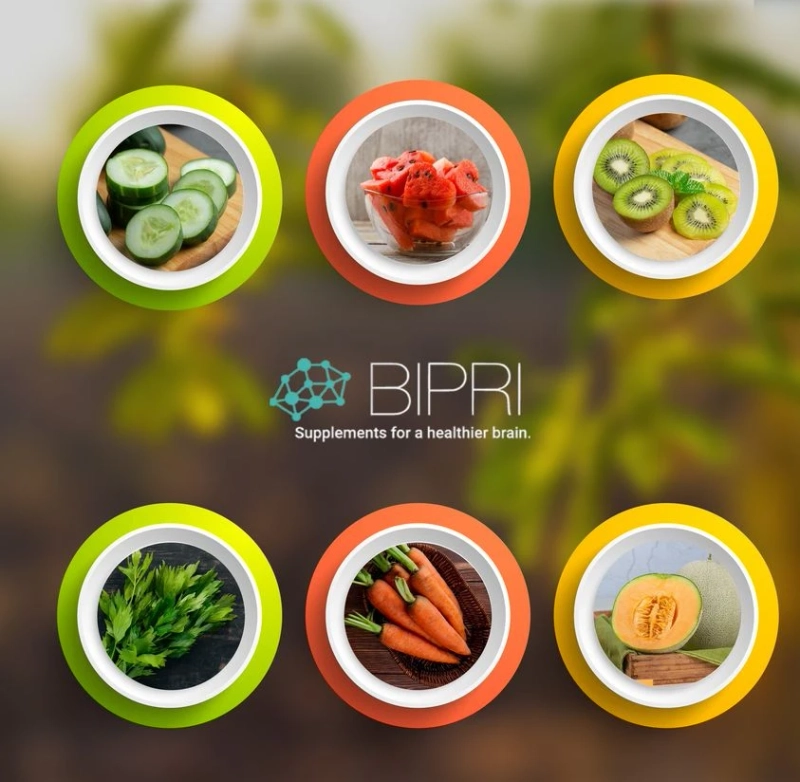As you know, the food you eat directly impacts your brain health. What you may not know, however, is that some foods are better for your brain than others.
Certain foods help to boost cognitive function, protect against cognitive decline, and even help reverse some damage done to the brain. Brain-healthy foods include leafy green vegetables, berries, fish, nuts, and olive oil.
In this blog post, we'll take a closer look at these foods and discuss their benefits for brain health. We'll also provide a list of the best brain supplements to help you boost your brain power.
What Are the Best Brain Supplements?
You might be surprised to learn that there are several different brain supplements that you can add to your diet to boost brain health. Some of the most common supplements include omega-3s, antioxidants, and B vitamins.
But it's crucial to choose the right brain supplements for you. Not all brain supplements are created equal but are harmful if you take them in excess. So, it's important to talk to a doctor or nutritionist before taking any new supplements.
Once you've got the all-clear from your health professional, there are several different brain supplements that you can start taking to improve your cognitive function. Some of the most popular and brain effective supplements include omega-3s, antioxidants, B vitamins, and herbs like ginkgo Biloba and St. John's-wort.
How Do Brain Supplements Work?
When it comes to brain health, supplements can help you out in a big way. But how do they work?
Well, it all comes down to the ingredients. When looking for a brain supplement, you want to ensure that it includes omega-3s, antioxidants, and B vitamins. These three ingredients improve cognitive function and protect the brain from age-related damage.
But that's not all, brain supplements should also include herbs like ginkgo Biloba and rosemary, which improve blood circulation to the brain and protect it from free radicals.
And finally, no brain supplement would be complete without caffeine. Caffeine helps improve mental clarity and concentration and can even help prevent age-related memory loss.
Folic acid and ironIn the form of the neural tube in the fetus, folic acid is crucial for the early development of the brain and spinal cord in the fetus. In the first few weeks of pregnancy, pregnant women should take folic acid supplements orally because the neural tube begins to form 4-6 weeks after conception.
Amaranth and Agathi leaves, kale, broccoli, whole grains, all lentils and legumes, spinach, and folic acid-fortified breakfast cereals are natural sources of folic acid.
When it comes to heme iron, egg yolks, poultry, meat, and organ meats are also excellent sources. Vitamin C sources, such as citrus fruits, must be combined with iron sources (lemon, orange, sweet lime).
ZincThe trace of Zinc supports immunity and also enhances brain health. Zinc aids in the development of new neurons in the hippocampus, which in turn aids in memory formation. The hippocampus is the area where memories are stored for long-term.
Zinc deficiency is associated with low cognitive skills, apathy, and mental retardation in children; In adults, it is associated with brain disorders like schizophrenia, alcoholism, Wilson's disease, and Pick's disease.
Whole grains, legumes, nuts and seeds, dark chocolate, eggs, poultry, spices and condiments, and dairy products are Zinc sources.
ProteinProteins are constructed from amino acids, and proteins, in turn, make up the organs. The production of neurotransmitters and the way the brain works both depend heavily on proteins.
Proteins from food sources break down into amino acids, which control mood and brain disorders.
Dopamine levels affect mood and other mental illnesses like schizophrenia, Alzheimer's, ADHD, and drug addiction. Pulses (legumes), eggs, poultry, meat, and dairy products are all protein sources.
Omegas 3 and 6Omegas 3 and 6 have a natural neuroprotective effect. These, according to studies, lessen the risk of cognitive decline as people age.
The development of the nervous system depends on EPA (eicosatetraenoic acid) and DHA (docosahexaenoic acid). During mental tasks, DHA has been shown to increase blood flow to the brain. Recent studies have shown that adults and children with ADHD (attention deficit hyperactivity disorder) who take DHA supplements show improvements in their behavior and attention. DHA is also effective in aggression, autism, dyslexia, and dyspraxia.
There are vegetarian sources as well, such as walnuts, chia seeds, hemp seeds, flax seeds, and soybeans, as well as fatty fish such as salmon, tuna, sardines, mackerel, oysters, and shrimp. Exercise caution while consuming fish liver oil as it contains high levels of vitamin A.
CopperIn addition to promoting hemoglobin synthesis and bone health, copper is crucial for the operation and maintenance of a healthy brain. Copper is necessary for the respiratory and antioxidant enzymes in neurons and ganglia. Copper is vital for the synthesis of neurotransmitters like dopamine and serotonin.
Any abnormality in copper oxidation metabolism will directly impact brain functions. Organ meat, particularly liver, oysters, spirulina, edible mushrooms, nuts and seeds, lobsters, and cocoa are examples of food sources.
SeleniumSelenium is one of the trace elements that are crucial for the proper functioning of the brain. Selenium is also necessary for dopamine pathways, hence selenium levels in the body directly impact mood, cognitive processes, motor skills, and memory.
In the early stages of life, a balanced diet is necessary for brain and central nervous system development. However, for normal functioning and to maintain brain health over time, it is crucial to include a wide variety of foods in the diet.
Key Takeaways
These six brain-healthy supplements should be thought of as ways to care for your mental wellbeing. Even if you are unsure about taking supplements long-term, you could introduce them into your current regimen if you’re figuring out mental stress. You can reach out to us with details on how to get started at 615-933-5188. And of course, always consult with your physician before starting a new supplement regimen.
0


